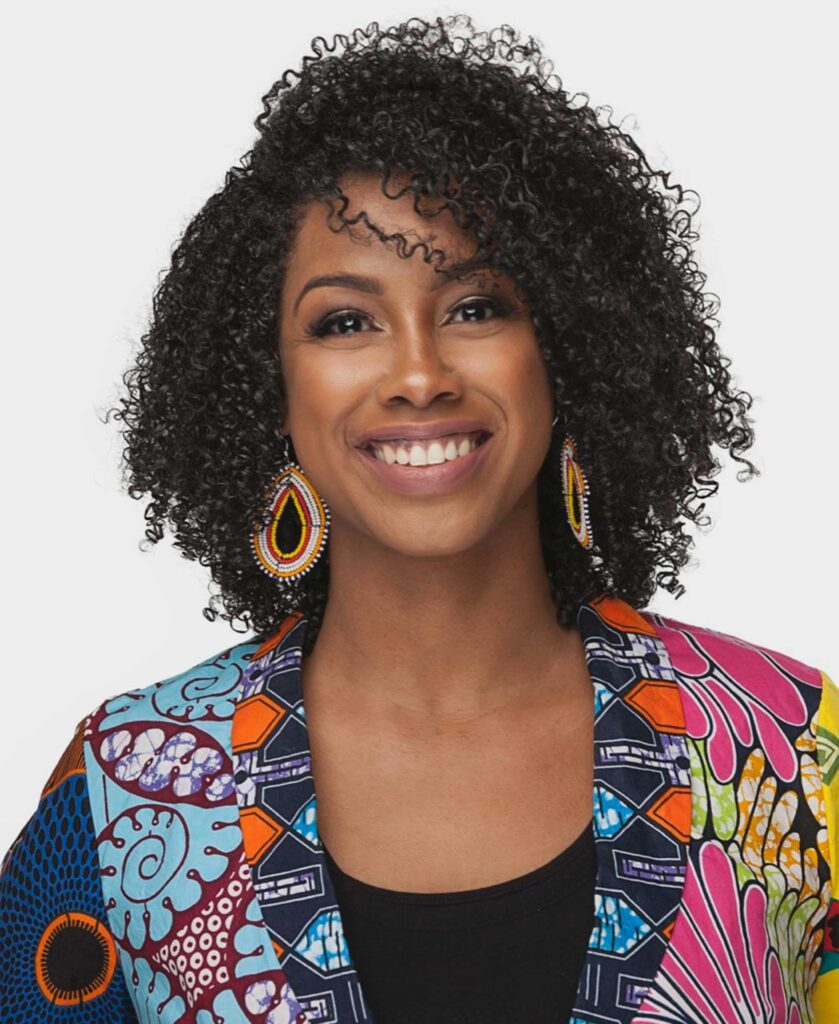Getting to the roots of trauma
PsychoHairapy fuses mental health assistance, hairstyling and history

Afiya Mbilishaka struggled with a conflict during her college years: Should she try to make a career in hair styling or psychology? Her aunt gave the answer: “Well, why can’t you do both?”
So she did.
Today, Mbilishaka is at the forefront of a global mental health and hair movement known as “PsychoHairapy.”
PsychoHairapy is “the use of hair as an entry point into mental health care,” Mbilishaka said.
She said she wants people to “understand your curls” and the heritage story they tell. And she thinks a hair salon is a good place to help people deal with their stress.
At its core, PsychoHairapy is a skills-based training course designed to instruct stylists on the intersection of mental health and hair care. The program includes training hair stylists and barbers in mental health first aid techniques. Stylists develop specific skills by way of assessing for harm and active listening.
Additionally, PsychoHairapy training delves into African history regarding traditional healing through the beauty process and the role of hair during rituals.
“It’s not to achieve maybe a Western or Eurocentric aesthetic, but to lean deeper into your heritage to understand your curls and understand how hair was used in rituals. So basically, how to elevate and have optimal health through the hair care process and not just for Instagram or something like that, but to really see how beauty is the sister of good health,” Mbilishaka added.
Though there are seemingly two unrelated components, Mbilishaka finds the connection between the two within the complex communication system that is hair.
“I think we can express certain parts of ourselves nonverbally — through our hair. If we actually talk about our hair care process, it reveals what’s going on inside of our personal lives …. Are we eating properly? Are we getting enough sleep? Are we exercising? Are we getting enough nutrients? All of these factors that produce healthy hair also create a healthy life, especially when it comes to our mental health,” Mbilishaka said in a phone interview from her home in Washington, D.C.
She recently traveled to Boston to deliver the keynote speech of the “Black & Beautiful in Boston” event, which featured dozens of Black mental health professionals and beauty influencers as panelists.
While small talk has always been a core element of going to the hair salon, Mbilishaka aims to dig deeper by way of subject matter. She said people are more vulnerable at the hair salon, and that allows PsychoHairapy certified stylists to establish a deeper connection with their clients.
“There’s this big service element. To know that you’ll be taken care of, it’s very rare in our adulthood that somebody actually bathes us and washes us, so I find that during the hair-washing phase of the salon visit, people release a lot of stress and tension,” she said.
Mbilishaka highlighted another healing aspect of PsychoHairapy, emphasizing the positive impact of the physical transformation clients experience throughout the process.
“Unfortunately, in [standard] therapy, people don’t leave looking differently, but in the salon experience, there’s a visual transformation of someone entering looking one way and leaving looking a completely different way,” she said. “And so, with that visual change and the conversation that happens during that process, it’s quite therapeutic.”
Though based in Washington, Mbilishaka’s work is appreciated far beyond. In Roxbury, Anthony Knight-Dingle, owner of M & Co. Hair Salon, said people are physically and mentally transformed in the hair salon.
“It goes with the service,” Knight-Dingle said. “A lot of clients are at a certain mental state when they come into the hair salon and get their hair done, and when they leave, they leave in a different state.”
Mbilishaka said the goal of PsychoHairapy is to create culturally informed and therapeutic conversations in spaces beyond the armchair in the office.
Some hair salons are already implementing the ideals of PsychoHairapy.
Keisha Gilliard, a stylist at Covenant Creations Hair Salon in Roxbury, said she curates an open and honest environment in her salon.
“We try to lend a good ear and recommend clients to the right sources, but mainly we create,” Gilliard said. We try to always have a very peaceful, comfortable environment where people feel safe and comfortable enough to even open up to share. A lot of time, they share things with us they’ve never shared with their families.”
Sharing her findings and revelations during her own therapy sessions with clients is a great form of help, Gilliard said.
“I’m open and honest with my clients, ‘Hey, I’m in therapy. This is what’s been working for me,’ … or ‘Hey, you see what you’re doing with me?’” she said. “‘You know, that’s exactly what happens with your therapist.’ There’s no difference, right?”


![Banner [Virtual] Art Gallery](https://baystatebanner.com/wp-content/uploads/2024/04/Cagen-Luse_Men-at-store-e1713991226112-150x150.jpg)



